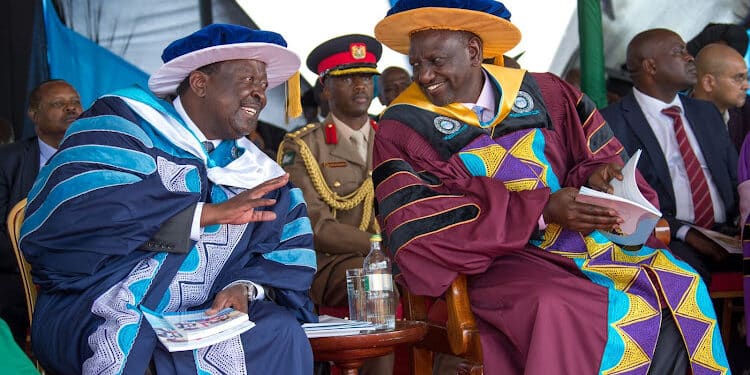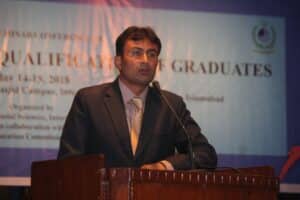The world is facing horrible situation of wars, hunger, and climate change, political and economic instability. Consequently, youth need to play crucial role in achieving Sustainable Development Goals – SDGs.
University graduates have fundamental responsibility to contribute to the realization of SDGs and to promote the awareness in the society for sustainable development. At the same time, curricula of higher education institutions should be reevaluated to address the barriers and challenges in achieving SDGs particularly in developing countries. Policies and practices should be aligned for the successful achievement of SDGs.
Higher education institutions should develop critical thinking about the sustainable development to address poverty, gender inequality and mitigate the severe effects of climate change. Problem solving skills should be taught to meet the demands of SDGs.
In 1987, Brundtland defined sustainable development as “development that meets the needs of current generations without compromising the needs of future generations”.
The 2030 Sustainable Development Agenda aims to address the challenges particularly in the field of social, economic, and environment.
Such goals were introduced as an evolution of the Millennium Development Goals (MDGs).

Existing gaps between SGDs and Higher Education
A lot of challenges exist to realize the SDGs including political and economic instability, unemployment and poverty.
Also Read: Educating Youth to Tackle Climate Change to Achieve SDGs
University graduates are expected globally to play an active role for the realization of SDGs. The question is that whether higher education institutions have succeeded in developing the required skills in youth for their active role in achieving SDGs. Critical questions arise from the existing curriculum, teacher training programs and the policies and practices.
For instance, pedagogy plays a vital role in operationalizing SDGs. Unfortunately, not much literature is available on the pedagogical skills in operationalizing SDGs.
The material for teacher training programs lacks teaching strategies linked to SDGs. In this regard, new pedagogical approaches are required.
For example, flipped classroom model may be adopted for teaching SDGs as this model provides more opportunities to work directly with students.
Similarly, teaching modules may be developed for the successful teachings of SDGs.
The Way Forward
In 2023, the United Nations Development Programme UNDP, reported that “Africa’s SDGs progress uneven, accelerated efforts required to meet the 2030 deadline”.
Also Read: Africa’s Higher Education and Why Reforms Are Needed
At the same time, the African Union has aligned Agenda 2063 and the SDGs with a focus on youth empowerment and children’s rights.
We should promote the contribution of youth for the sustainable development by providing a joint platform of higher education institutions.
This is possible by first identifying the barriers in the teaching, learning process for the active role youth regarding SDGs.
Lastly, table talks, and training programs need to be strengthened to realize SDGs.
Follow our WhatsApp Channel and join our WhatsApp Group for real-time news updates.












































































